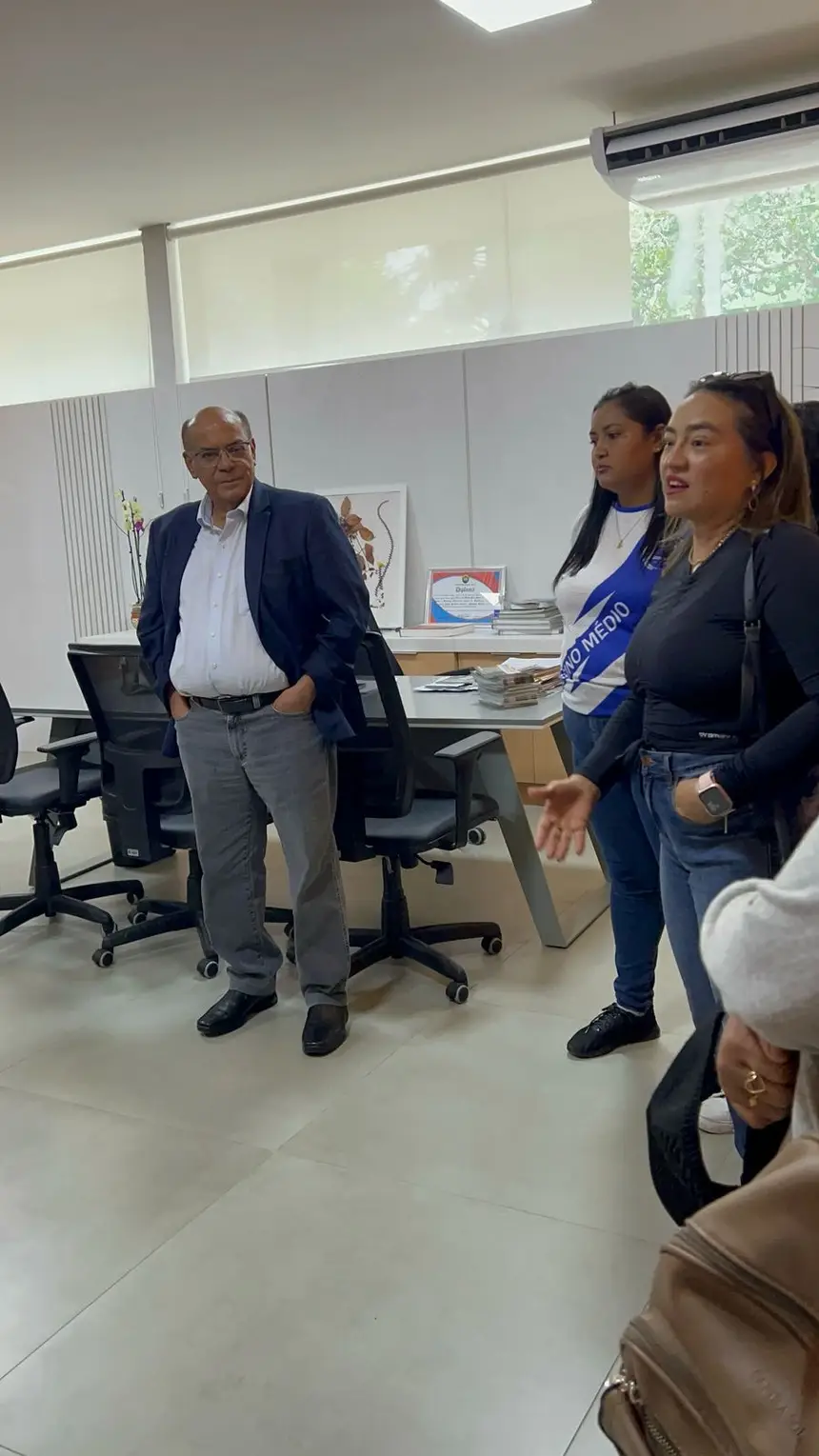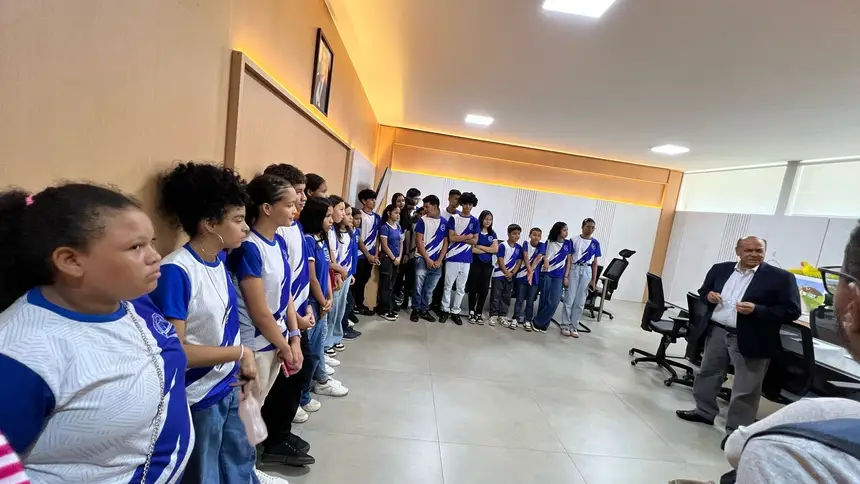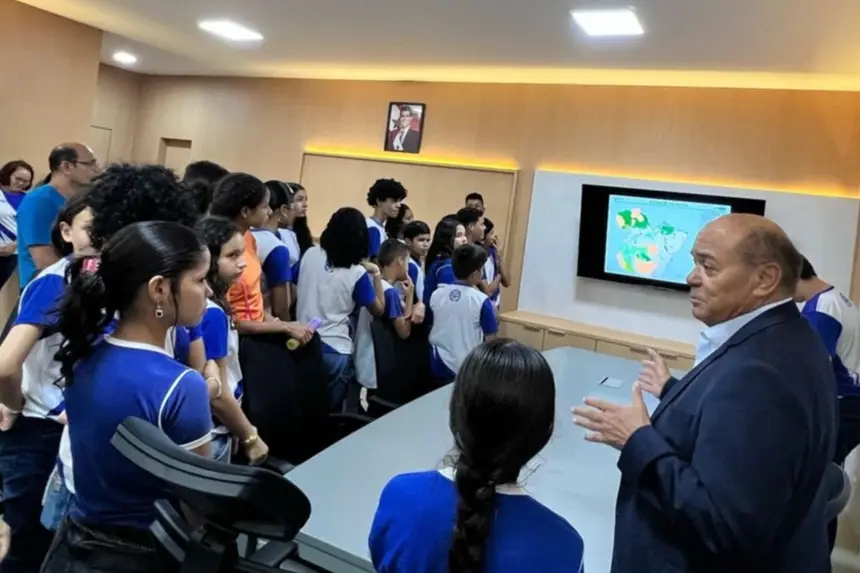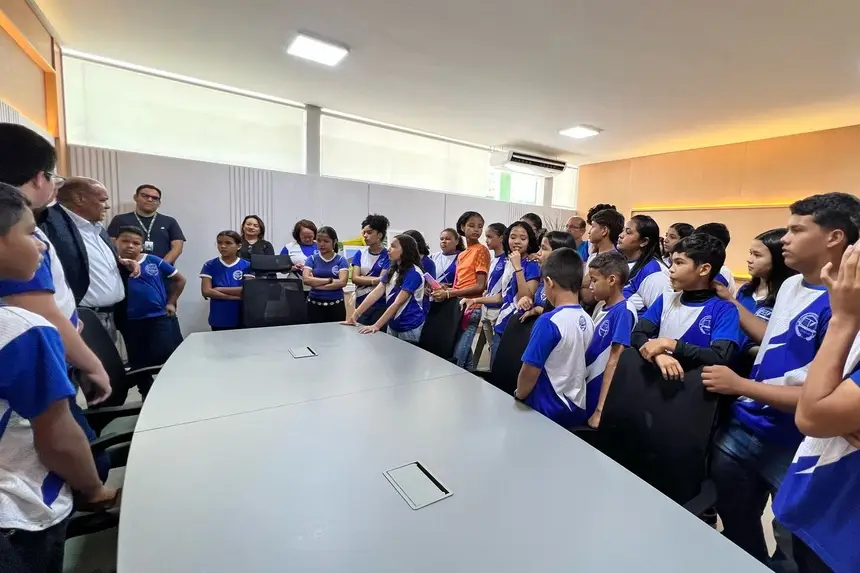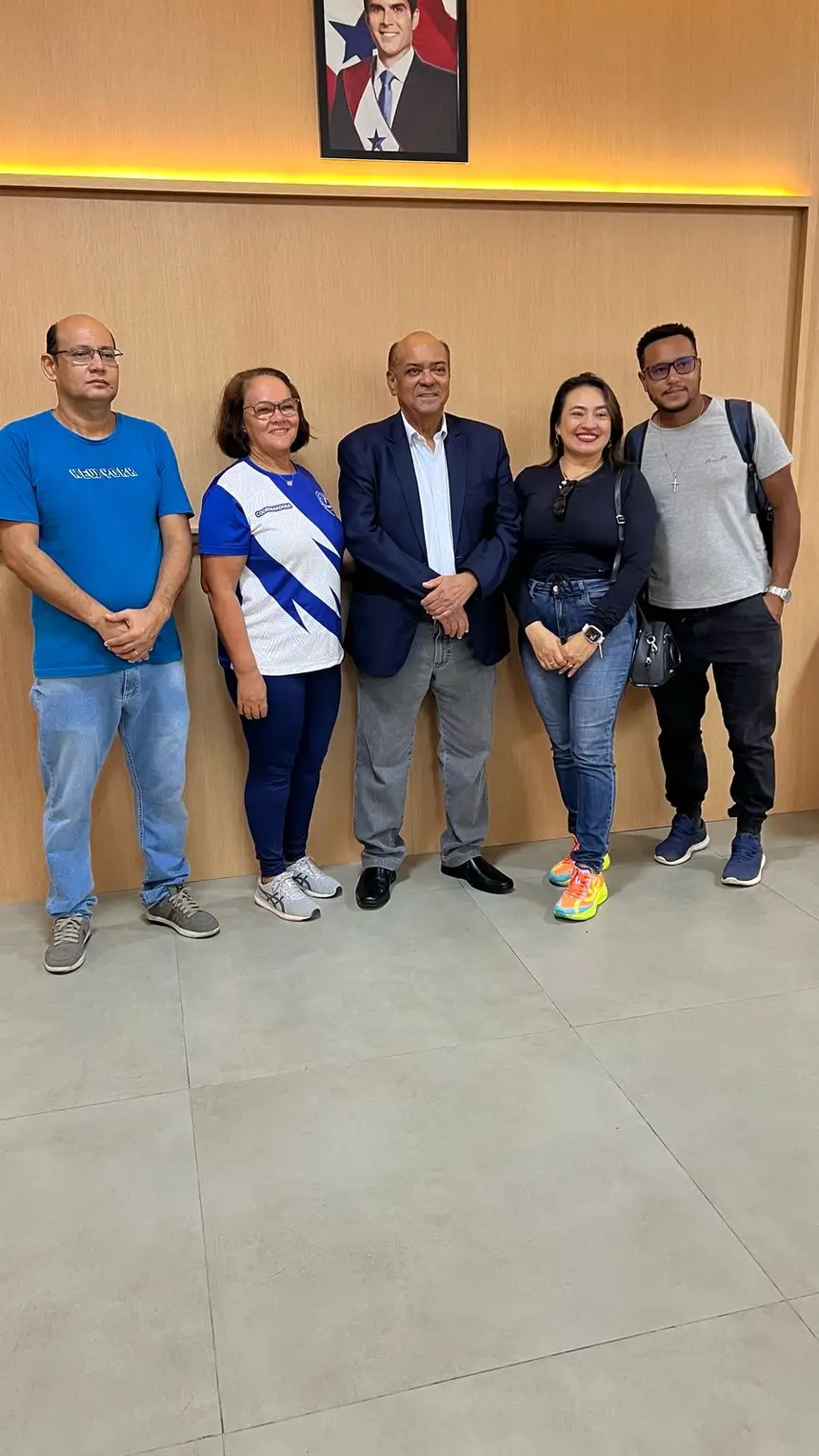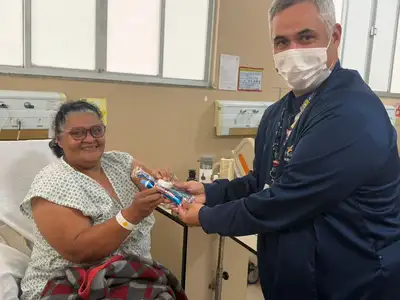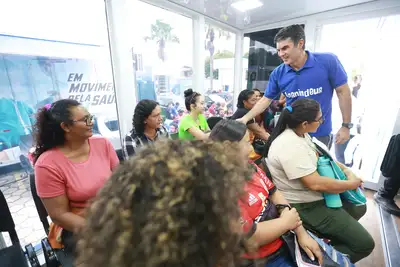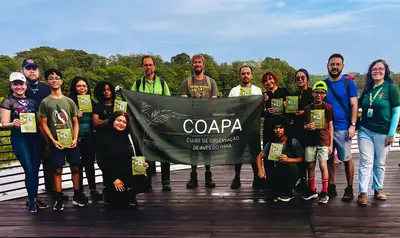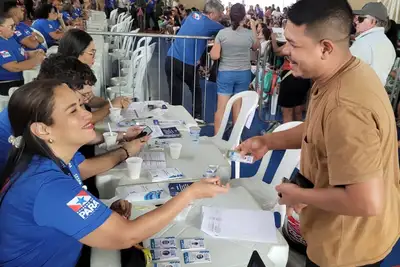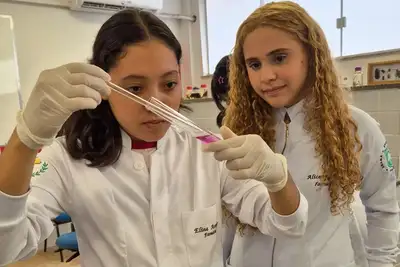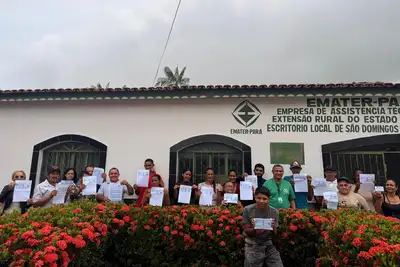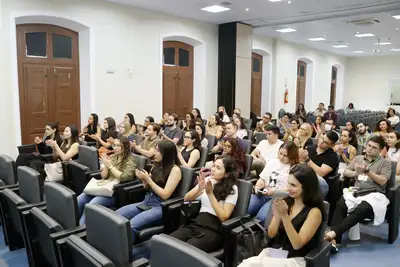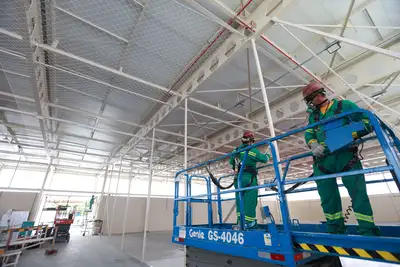Students from Benevides get a close look at the work of Ideflor-Bio and the biodiversity of the Utinga State Park
The activity aimed to bring students closer to topics related to environmental education, nature conservation, and public policies for environmental management
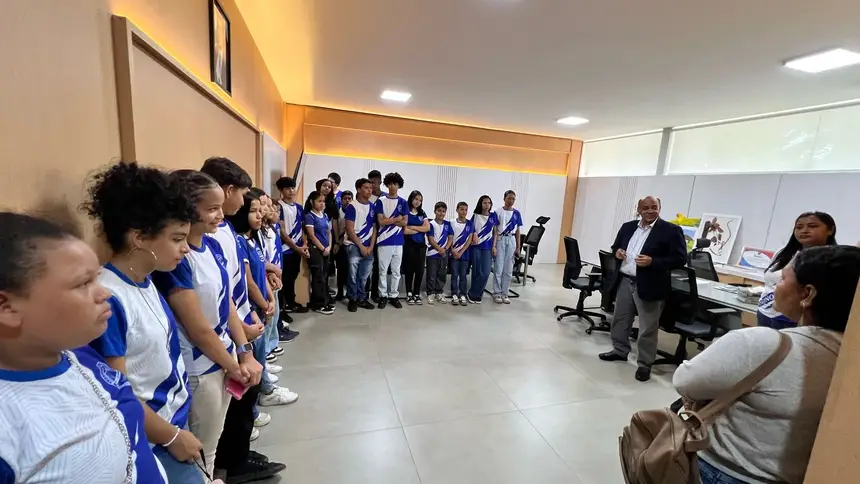
About 30 students from the Terceira Travessa State School in Benevides participated this week in a technical visit to the Institute for Forest Development and Biodiversity of Pará (Ideflor-Bio) and the Utinga State Park "Camillo Vianna" in Belém. The activity was part of the "Field Trip" project promoted by the school to bring students closer to topics related to environmental education, nature conservation, and public policies for environmental management.
At the headquarters of Ideflor-Bio, the students were welcomed by the president of the Institute, Nilson Pinto, who presented the mission, vision, and values of the agency. The leader explained how the management of Conservation Units (UCs) works in the state and highlighted the importance of society's participation in the protection of natural resources. Each student received a copy of the Ideflor-Bio Conservation Units Catalog, which contains detailed information about the 29 UCs managed by the Institute, such as management category, territorial extension, and creation date.
"The presence of these young people here today reinforces Ideflor-Bio's commitment to forming a more conscious and engaged generation in environmental preservation. It is essential that environmental education is present not only in classrooms but also in public conservation spaces," said Nilson Pinto.
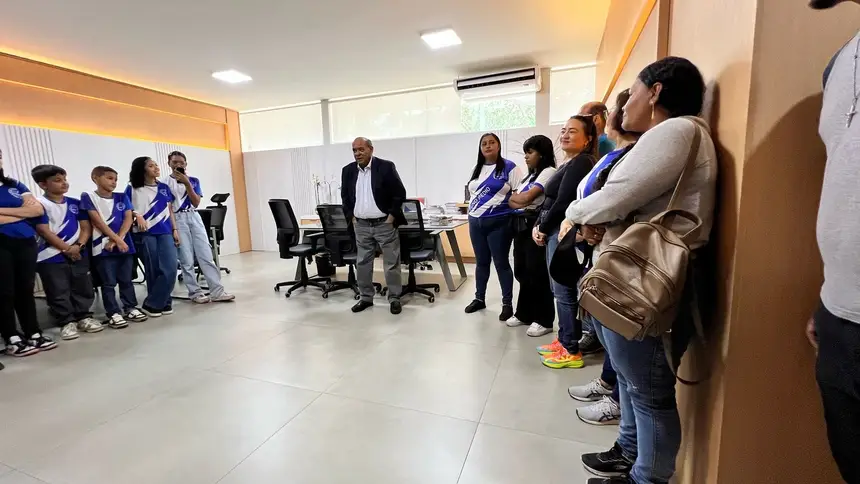
Learning - The visit continued with a tour of the Utinga State Park, one of the main natural heritage sites of the capital of Pará. The students were able to closely observe the structure of the space, the ecological trails, and the diversity of Amazonian fauna and flora present in the area. The activity was accompanied by Institute staff, who reinforced the importance of the park for the conservation of the water sources that supply Belém and for the well-being of the population.
The teacher responsible for the class, Carla Barros, who teaches Biology, Science, and Environmental Education, emphasized the relevance of the experience for the students. "Today we bring this field trip project here in Belém and we thank the State Government for the seriousness of the work, for the welcome, and for the assistance. It is a way to also provide practical education. When we talk about Copa Pinta, when we visit the parks, what we see here is a true columbarium of Belém, and this gives us great satisfaction," emphasized the educator.
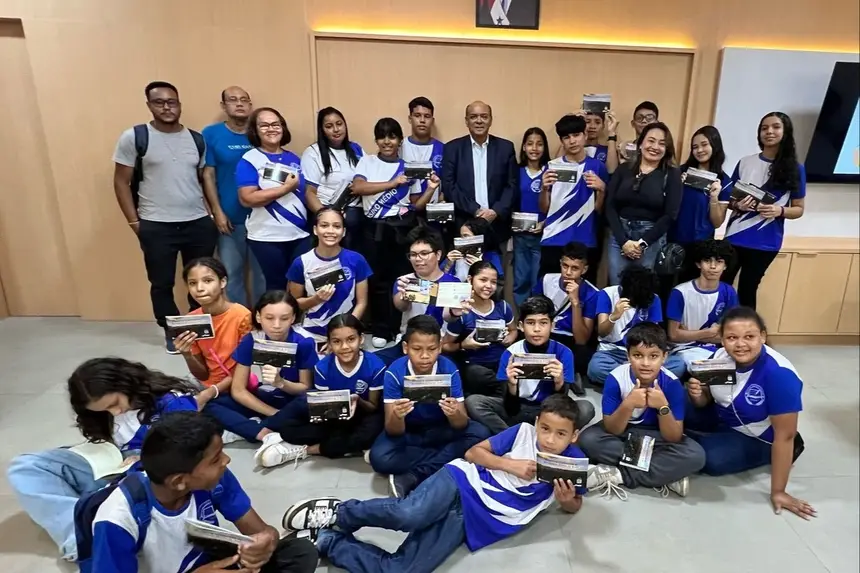
The direct contact with the protected space and with environmental managers provided the students with a concrete experience of the content learned in the classroom. The action reinforces the role of Conservation Units not only as areas of environmental preservation but also as spaces for education, inclusion, and citizenship.



